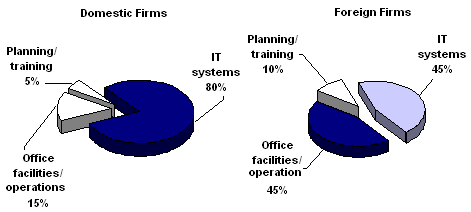Business Continuity Planning in Japan
Abstract
Celent estimates that banks and brokerages in Japan will spend US$866 million on business resiliency in 2005, a figure that will grow to approximately US$886 million in 2007.

The past few years have seen growing concern over disaster preparedness in the Japanese financial industry. The country's political and financial capital, Tokyo, lives under the constant threat of large-scale damage from a major earthquake. The September 11 terrorist attacks and more recent events such as the SARS outbreak of 2003 generated a new wave of interest in disaster recovery programs. In a short period of time, business continuity planning (BCP) has become an established concept in Japan: More than 75 percent of financial institutions have some sort of business contingency protocol. Nevertheless, many firms still lack full-fledged BCP programs that address both the systems recovery and operational continuity aspects of disaster preparedness.
Focusing on the major domestic and foreign banks and securities firms, Celent’s new report, Business Continuity Planning in the Japanese Financial Services Industry, examines the history and current state of BCP efforts in Japan. The report analyzes BCP drivers and barriers, the role of regulators, and typical system backup levels and operational continuity practices at these firms, as well as at market institutions. The report concludes with an account of future trends in BCP and Celent's recommendations for improving industry-wide BCP preparedness in the Japanese financial markets.
"The relative lack of information exchange among financial institutions and their regulators regarding business resiliency is a potentially serious problem," comments Neil Katkov, senior analyst at Celent and author of the report. "To maintain the integrity of the markets during a crisis, all participants—including brokerages, banks, exchanges, and clearing institutions—need to be on the same page regarding recovery capabilities."
The 41-page report contains 14 figures and 7 tables.

